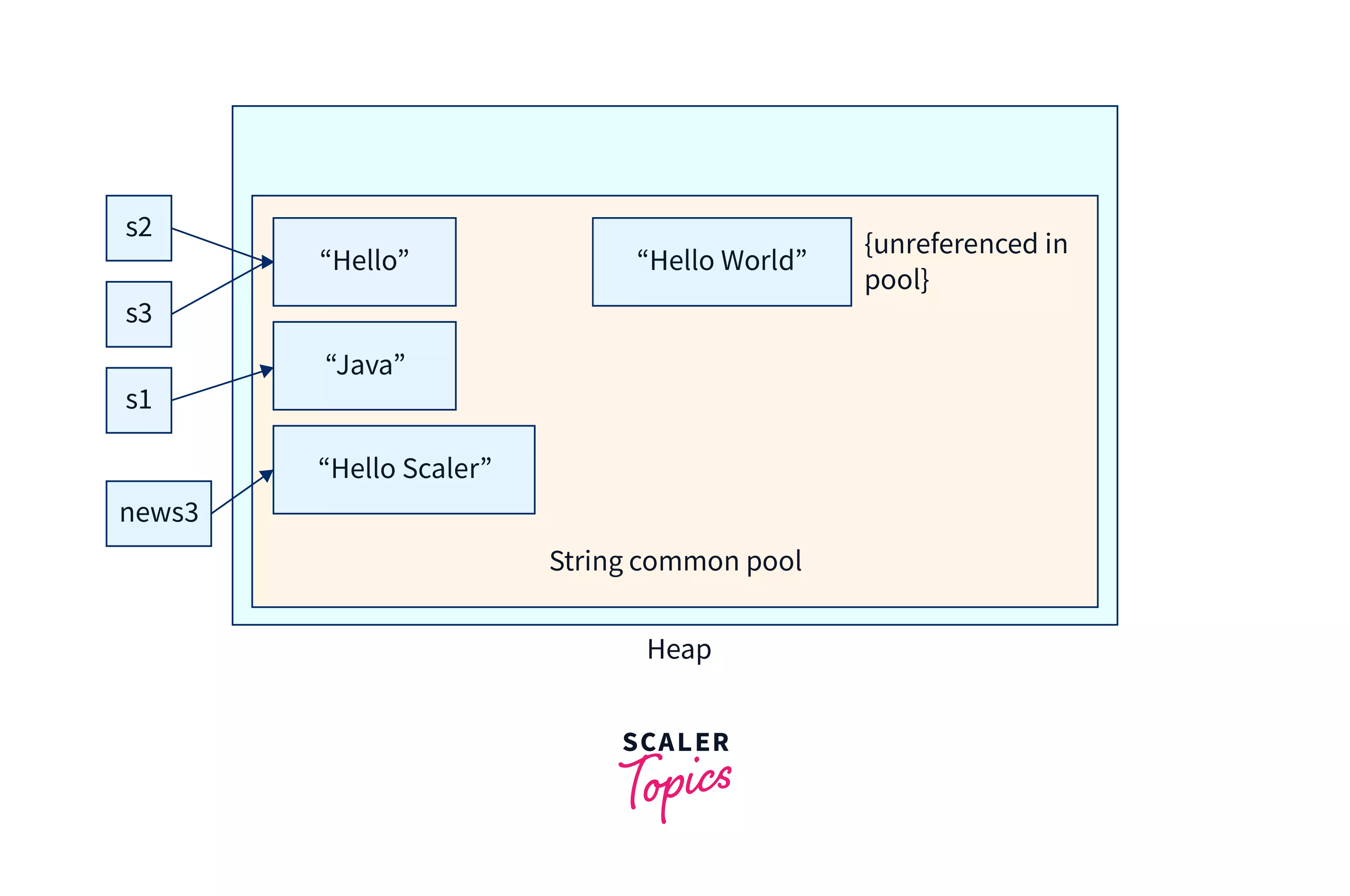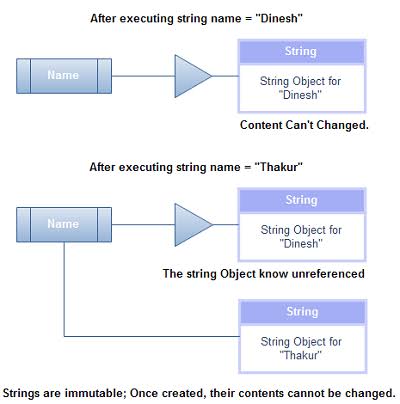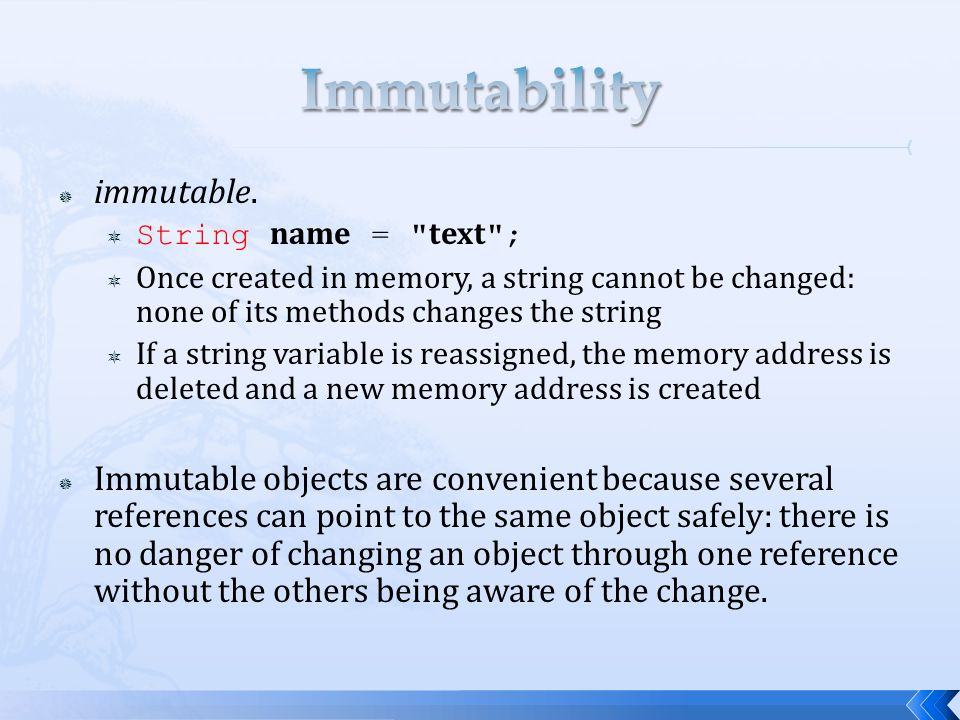Exploring the Advantages of Unalterable Strings in Modern Programming Paradigms
In the realm of contemporary programming paradigms, the principle of immutable strings stands as a foundation of robust software program advancement. The benefits they offer go beyond mere ease; they basically modify the means data is handled within applications. By taking on unalterable strings, developers can make sure boosted information honesty, boosted string security, simplified debugging processes, raised security actions, and effective performance optimization. These advantages act as a testament to the profound impact that accepting immutability can have on the reliability and efficiency of software application systems.
Enhanced Information Integrity

By preventing the adjustment of string things, immutability gets rid of the threat of unintentional adjustments to the information they hold. This not just improves the security of the information yet likewise boosts the reliability of the code that depends on these strings.
Immutability also supports safer multithreading atmospheres, as simultaneous accessibility to unalterable strings does not posture the threat of information corruption through simultaneous modifications. This property streamlines the process of dealing with strings in identical programs scenarios.
In significance, immutability works as a protective guard around the data kept within strings, improving their honesty by ensuring that as soon as specified, their worths stay unchanged throughout the program's implementation.

Boosted Thread Security
Immutable strings boost the string safety and security of programs by ensuring that once a string things is developed, its value can not be modified. This residential property removes the danger of simultaneous threads attempting to change the very same string concurrently, which might cause information corruption or irregular states in the program - Why are strings immutable in Java?. In a multi-threaded setting, where several threads access and control data simultaneously, the immutability of strings gives a level of safety by guaranteeing that the data continues to be unmodified throughout its lifecycle
Simplified Debugging Procedures
Offered the boosted string safety promoted by immutable strings, a considerable advantage occurs in the realm of simplified debugging procedures. Immutable strings, once produced, can not be modified, making it less complicated to trace the flow of information and determine the resource of pests in a program. This immutability makes certain that strings remain constant throughout the execution of the program, minimizing the probability of unforeseen modifications that might lead to errors.
When debugging with mutable strings, developers typically run into concerns where a string's value is customized unintentionally, making it testing to determine the origin cause of a pest. However, with immutable strings, the data continues Look At This to be unchanged, enabling programmers to concentrate on assessing the real reasoning of the code instead than finding where and when a string was changed incorrectly.
Furthermore, immutable strings simplify the debugging process by making it possible for much easier reproduction of pests. Considering that unalterable strings do not alter state, programmers can recreate and examine insects better, bring about quicker identification and resolution of issues within the codebase. This streamlined debugging operations inevitably adds to greater software application quality and improved total advancement effectiveness.

Boosted Security Actions
Enhancing information security and fortifying system stability, the usage of immutable strings in software application applications adds dramatically to enhanced protection actions. Immutable strings, when produced, can not be customized, providing an important defense versus harmful tampering or unapproved accessibility. By guaranteeing that delicate information kept in strings remains unchanged throughout the program's execution, the danger of information breaches or injection attacks is greatly minimized. Why are strings immutable in Java?. Immutable strings likewise play an essential function in protecting against usual security vulnerabilities such as buffer overflows and SQL injection attacks, as efforts to manipulate string information at runtime are naturally limited.
Moreover, the immutability of strings improves the predictability of program habits, making it much easier to confirm inputs and prevent unexpected adjustments that could jeopardize protection. This predictability streamlines the process of bookkeeping and confirming code, allowing designers to recognize prospective protection technicalities much more successfully. Generally, incorporating unalterable strings into software program advancement practices not this hyperlink just enhances the effectiveness and reliability of applications but additionally enhances their resilience versus protection hazards.
Effective Performance Optimization
When dealing with mutable strings, procedures like concatenation or substring creation commonly result in the production of new string objects, leading to memory overhead and enhanced processing time. By allowing strings to continue to be unchangeable and constant, unalterable strings promote much better memory monitoring and caching chances, ultimately boosting the general efficiency of the software.
Immutable strings additionally play a critical role in multithreaded environments by advertising thread safety and security. Why are strings immutable in Java?. Because immutable strings can not be customized once developed, they can be shared across strings without the risk of unanticipated modifications, reducing the demand for synchronization mechanisms and boosting concurrency. Additionally, unalterable strings simplify debugging procedures as developers can rely on that a string's worth will continue to be constant throughout the program's implementation, getting rid of possible errors created by mutable state modifications. Finally, using unalterable strings not only boosts safety and security yet likewise considerably adds to the efficient performance optimization of modern software program systems.
Verdict
Finally, the benefits of using immutable strings in contemporary shows paradigms can not be overstated. Enhanced data integrity, improved thread safety, simplified debugging processes, boosted safety actions, and effective efficiency optimization all contribute to the general efficiency of programming tasks. By including unalterable strings into shows techniques, developers can gain from an extra dependable and durable codebase.
Immutability, a key function of strings in programs languages such as Java and Python, ensures that as soon as a string object is created, it can not be modified or customized.Unalterable strings enhance the thread security of programs by guaranteeing that once a string object is developed, its value can not be changed. Unalterable strings also play a vital function in avoiding usual safety and security susceptabilities such as barrier overflows and SQL shot strikes, as attempts to adjust string information important link at runtime are inherently limited.
By allowing strings to continue to be unchangeable and constant, immutable strings facilitate far better memory administration and caching opportunities, ultimately boosting the general effectiveness of the software program.
Immutable strings simplify debugging processes as developers can trust that a string's worth will certainly continue to be regular throughout the program's implementation, removing potential errors triggered by mutable state adjustments.
Comments on “Why Are Strings Immutable in Java? Insights into Memory Performance”